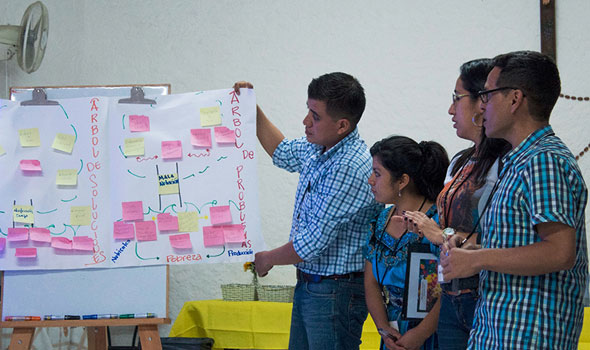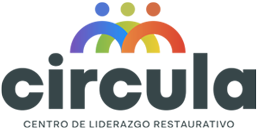- (+502) 7832-8585
- info@liderazgoguatemala.org
BACKGROUND
It can be argued that the Guatemalan government, in addition to its civil society, is still recovering from the internal armed conflict that buried the country for decades and ended in 1996. Although the country has begun to move forward from this recent painful history, it faces a series of serious challenges. These include:
>> One of the most unequal income distributions among the countries of the Western Hemisphere
>> Among the highest rates of illiteracy and chronic child malnutrition globally
>> The lowest median age in the Western Hemisphere at 20 years
>> 51% of the population which lives on US $ 2 a day or less
>> Endemic corruption that places it in the lowest third of the world’s countries in terms of government morality
>> Limited collaboration among the more than 15,000 NGOs operating in the country

When considering how to confront these challenges, it is useful to take into account that the Guatemalan government has not been effective in solving local problems. Additionally, the changing nature of the country’s political leadership has exacerbated the government’s unreliability as a source of development aid. Many of the organizations facing the challenges listed above face a general leadership deficit — meaning that, as a result of the absence of high-quality leadership education, there aren’t any expert leaders. This is a deficiency that we address in ALG.
In particular, there is a lack of strong leadership among NGOs and public institutions that seek meaningful and progressive change. NGOs may have difficulties in finding and attracting high-quality leaders; in other cases, the current direction of these organizations (even if they have good intentions) frequently demonstrates ineffective leadership for their own organization, as well as for the NGO community in general.
This often results from the fact that leaders often do not devote time to their own personal and professional development. ALG believes that it is crucial for leaders to nurture, encourage, and train themselves to prioritize both their own formation and their impact. This applies both to their personal development and to their efficiency and professional commitment.
In addition, the quality of the work of organizations focused on social change, however valuable, is often weakened by the lack of collaboration and coordination between them. Sometimes this is because commitment to external organizations has not been given enough importance. There is a tendency in organizations to be highly jealous of their funding sources. This sometimes leads them to see it as risky to share information or collaborate closely with another organization. The potential benefits of collaboration — shared information, knowledge learned from the experience of others, distribution of work, and taking advantage of each organization’s strengths — are easily forgotten or overlooked.
This lack of collaboration is partly due to incomplete knowledge of the total landscape of peer NGOs and even public institutions, which could offer the valuable possibility of partnering, even if they use different tactics or have different missions. There are important opportunities to work together, to achieve more on shared goals or to achieve goals at a higher level/more effectively — but this depends on their knowledge of the other organizations and a demonstrated willingness to invest in building relationships with others. At ALG, we maintain that unity is strength and that the impact of the important work that organizations do is increased when their leaders are open to work beyond the walls of their own organization in collaboration. That is why our networking exercises are intentional and continuous. Over the years we have observed that our network has become, in an almost spontaneous way, sustainable learning and collaboration communities.
The chronic lack of financial support for professional education that would lead to the development of leadership potential, and the refinement of technical skills limit a leader’s ability to seek and take advantage of opportunities for professional development. ALG seeks diverse sources of financial support to make available to the leaders of non-profit organizations the tools they need to advance their leadership and achieve results that turn into greater well-being and quality of life for Central Americans.
Notes:
- See World Food Program, “Guatemala: Overview." Accessed on 5 Mar 2013.
- See UNICEF, “Guatemala Overview: Malnutrition." Accessed on 5 Mar 2013.
- See Food and Agriculture Organization, “Nutrition Country Profiles: Guatemala.” Accessed on 5 Mar 2013.
- See las clasificaciones por país. Accessed on 5 Mar 2013.
